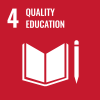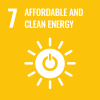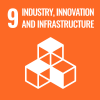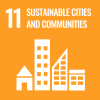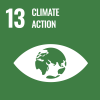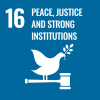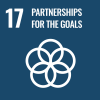
Since 2019, Universitas Gadjah Mada initiates to implement a large scope of multidiscipline collaborative courses by involving six faculties which can cover three aspects of sustainable development (economics, social, and environment), those are Faculty of Engineering (Department of Nuclear Engineering and Engineering Physics, the Department of Electrical Engineering and Information Technology), Faculty of Economics and Business, Faculty of Social Science and Political Science, Faculty of Law, Faculty of Biology, and Faculty of Forestry. These collaborative courses aim to encourage energy transition in the academic environment (higher education) through collaborative multidiscipline in the form of cross-faculty courses. A comprehensive approach is required to encourage energy transition. In addition, qualified human resources who have comprehension in various cross-field issues related to energy transition demands are also important. Therefore, the detailed plan regarding comprehensive study in each faculty is formulated based on these following considerations:
- The study includes challenges on multidimentional energy system
- Energy is defined as fuel and electricity
- Courses in the Faculty of Engineering emphasize on the technology, requirements of sustainability, reliability, techno-economics, lesson learned, readiness of technology, research and development, national sustainable energy industries (renewable and nuclear energy)
- Courses in the Faculty of Forestry include forest conservation related to opened coal mining, consequences of land conversion for palm oil industry, bio-energy management, biodiversity aspects
- Courses in Faculty of Biology discuss challenges on biodiversity regarding coal and palm oil, bio-energy technologies
- Courses in the Faculty of Social Science and Political Science include social-political impacts stemming from the current energy system (including coal and palm oil), acceptability of renewable energy systems (nuclear and renewable energy technologies), establishing energy system community and managerial institution, inclusive energy system, and geopolitical aspects in energy system transition
- Courses in the Faculty of Law emphasize on regulation as a potential obstruction for energy transition, study on regulation making which encourages the acceleration of energy system transition, and international cooperation aspects.
- Courses in the Faculty of Economics and Business discuss macro-financial framework in energy system, financial solution for energy system transition, as well as sustainable energy (renewable and nuclear energy) business and industrial development.
These cross-faculty collaborative courses are developed to become compulsory and optional courses. The lecture materials are designed to include economic, social, and environmental aspects. However, each faculty has a different emphasis corresponding to the faculty’s field of expertise. Department of Nuclear Engineering and Engineering Physics has Sustainable Energy System course, Department of Electrical Engineering and Information Technology conducts Renewable Energy Integration in Electricity Power System course, Faculty of Economics and Business has Energy Economics course, Faculty of Social Science and Political Science conducts Energy Sociology course,while Faculty of Biology, Faculty of Law, as well as Faculty of Forestry play a role in strengthening those cross-faculty courses. Through the cross-faculty collaborative courses, the students are taught by lecturers from other faculties, thus they can gain skills and knowledge regarding economics, environment, and social.
Source:
Utami, S. U., Budiarto, R., Prayitno, B., & Salis, F. R. (2019). Creating a sustainable well-being through UGM’s multi-discipline courses. Proceeding of the 5th International Workshop on UI Greenmetric.
